Episode 249 - Hope is an Accelerator With Junita Flowers
Not many bakers at the local Farmers Market get a chance to do a TED Talk, but Junita Flowers has a knack for rising above the crowd.
The founder of Junita’s Jar got her start after leaving an abusive relationship and looking for ways to restore joy and hope in her life and the life of her kids. She turned to baking: a childhood hobby that carried positive memories and helped her heal from her broken situation.
Now, those cookies are being sold in major retailers across the country.
She joins the show to talk about the challenges of the entrepreneurial journey and how hope has been an accelerator for her as she’s started and scaled her business.
Be sure to follow the show for weekly episodes that feature Christian entrepreneurs doing incredible work. And, if you like the show, leave us a rating and share it with others.
All opinions expressed on this podcast, including the team and guests, are solely their opinions. Host and guests may maintain positions in the companies and securities discussed. This podcast is for informational purposes only and should not be relied upon as specific advice for any individual or organization.
Episode Transcript
Transcription is done by an AI software. While technology is an incredible tool to automate this process, there will be misspellings and typos that might accompany it. Please keep that in mind as you work through it.
Rusty Rueff: Hello, everyone, and welcome back to the Faith Driven Entrepreneur podcast. We're so glad you're here once again this week on this show and in pretty much all of our content, we never want to shy away from the challenges that life throws at us as entrepreneurs, or even just as humans. Living in a broken world means we often encounter broken situations. But how can we redeem our brokenness? Well, that's what we're going to dive into today with our guest, Junita Flowers. Junita is the founder of a large baked goods company called Junita's Jars, which she started in her kitchen and now has scaled to be in targets and other retail chains all across the country. The business began as a way to get back on her feet after an abusive relationship, desperate for some sense of joy in a tragic situation. She returned to an activity she loved as a child, and it gave her something even more hope. Today, she unpacks her journey and shares how hope can be an accelerator for greater peace and greater business. Let's open up this cookie jar and dive right in.
Henry Kaestner: Welcome back to the Faith Driven Entrepreneur podcast. I'm here as always, or most of the time with William and Rusty, William, Rusty is supporting these. I don't know if we're going to have this on video or not, but Rusty is easily the most fashionable of the three of us.
William Norvell: By a landslide.
Henry Kaestner: By a landslide. He's got like the coolest glasses on ever.
Rusty Rueff: It's not very hard, guys. It's never. Oh.
William Norvell: That hurts more than I thought it would. Honestly.
Henry Kaestner: It speaks to the truth, though. He does. He really does. So low bar. Yeah. So I want to ask each of you before we get going. Share with our audience real quickly. One thing that you're each most excited about, about the way that you see God at work in the world. William
William Norvell: Wow. Just in general. Oh, gosh. So I know we don't like to timestamp things, but coming after Easter, it's hard not to. I got to go home to Alabama for Easter to surprise my family with my five year old son, which was awesome. They didn't know he was going to be able to make it. They don't get to see him that much because it's across the country. And we walked into a random church that I'd never been in before, right? You know, we were back home and didn't have a home church. Long story. But just amazing to me that just the body of Christ and how it can work and how you can walk into a random building that knows no one and how people welcome you in and how I knew where they were going. I knew they were talking about specifically on Easter, I could celebrate the resurrection 3000 miles from my home and feel at home and feel with people. And so just so inspired by the global body of Christ and just how we all have so much. I know maybe I'm inspired by this because I feel like so much these days is about the fighting of different people and things and Christians. But we cling to the resurrection of Christ. We cling to the fact that we have won. Death has been defeated. What else do we have to fight about? And for at least one day in one random small town church in Florence, Alabama, I got to celebrate that and it was amazing.
Henry Kaestner: Outstanding, Rusty
Rusty Rueff: You know, for me, Henry, it can be a pretty dark time in the world right now. You know, every time we turn around and something dark has happened and you start to, you know, question and lose a little hope. And I think what God is speaking and I'm seeing and we just went through a horrific event in my hometown area in Louisville, Kentucky. Yeah. And a lot of friends, people one of the businesses I owned right around the block going there this coming weekend for another event and hotel I'm staying at is on the same block as where that happened. And so it's really it's really struck, Patty and I, that, you know, this dark world sometimes is really real, you know, even though we sometimes maybe you feel sheltered from it. But you know, what continues to be revealed to me is that in the darkest moment, God's light shines the brightest, that that's when we see the light, when it's in the darkest time. And a little thing happened that just reminded me of that this week, this past week was there's a retired pastor in Louisville, Bob Russell. He's got a great ministry, but he created South East Christian Church. And he was asked by a radio personality, as I understand it, because I saw this on Twitter to say a little prayer for Louisville. And as Bob said, he thought that was going to be a 30 seconds prayer, but it actually turned out to be a three minutes and nine seconds prayer. And that prayer went viral throughout the city, praying for hope, praying for the families of the victims, praying for peace in the city, praying for law enforcement, government, all people involved. And it just reminded me in the darkest moment, God still shows up, you know, And we just got done celebrating Easter. And I'm always, always reminded, you know, when did they find that Jesus, you know, had come from the tomb, you know, And they went there in the dark of the night, not in the light. And he left that tomb in the dark of the night to show us the light of the world. Yeah. So that's really been speaking. What about you?
Henry Kaestner: While to build on what William is talking about. I just am so impressed and grateful for the global church and just there's something about seeing God more fully through people from different cultures. And we're just, you know, so much of the way we got start, of course, together is through a blog in this podcast, in the conference. But really within the last couple of years, so much of the growth of the ministry has come from groups, men and women getting together all over the world and going through the foundation's course and then monthly groups after that. And based on story and teaching and facilitated conversation, I get a chance to facilitate two different cohorts of entrepreneurs from Africa, most of them from Lagos, Nigeria. And it was so cool just to see them process through the marks together, the call to create identity in Christ and to go through that video series together. And I've got a chance to lead a lot of groups, and I shouldn't have favorites among their groups, but there is something about doing this with people across ten different time zones and just hearing how God is speaking to them as they overcome obstacles and challenges that are different than mine and with the hope that is though the same as mine. And there's something about uniting us, whether we're in Florence, Alabama, whether it's Louisville, Kentucky, in Rusty, your story from Louisville is convicting that God's light absolutely shines. It's always shining. It absolutely Then shines maybe more clearly in darkness. And we're seeing that. And God's light is just encouragement does and times which are bleak. And, you know, today's story is really building on that. Junita Flowers is a new friend of the movement. She was referred to us by Joe Sexton, who we've had on the podcast before. And hers is a story coming out of challenge and God redeeming something in a magnificent way that's reached some great scale. And Junita, thank you very much for being with us. It's just really encouraging for us to be able to hear your story and we're just going to jump right in. I want to just hear some of the basics as we get started. You scaled a cookie company to the point that you're in targets across the country, massive scale. What was that path like? So the beginning part of the path that brought you from baking in your kitchen. Overcoming adversity to a nationwide business. Let's talk about the beginning right through to the adversity part, please.
Junita Flowers: I think going back to my childhood and thank you so much for having me here today. I'm so excited to.
Henry Kaestner: It is great to have you on
Junita Flowers: talk with you all. I think going back to my childhood, I'm one of eight and I'm the third oldest and so I had a lot of chores and responsibilities growing up. And I just knew because, you know, we all had a job in the kitchen and washing dishes and cooking the meals and helping my mom do all those things. I was not going to have a job where I was going to be in the kitchen. I was going to protest the kitchen because I was going to be a hamburger helper and like all the things. So it started as a child, but there was so much joy in the kitchen, even though I didn't think I'd ever have a job doing something in the kitchen. But there was so much connection. My grandmother would come over once a week and help my mom prepare meals every Wednesday. And so we just connected in ways that I didn't even realize was happening as a child. So fast forward to my life as an adult. I was married and it was an abusive relationship. And when I was trying to find ways to cope because I wanted my family to work and I felt like if I stayed and, you know, if I worked harder, I prayed harder, if I was quieter, nicer, like just trying to do all the things that maybe it would get better. And it wasn't changing. But I needed a way to figure out how to cope with the chaos. And so I went back to baking, went back to what I did growing up, where all of those beautiful memories were made, connections were had, and so it was like I was able to escape the chaos of everyday life every time I went in my kitchen to bake. And I didn't think I was starting a baking business, it literally was coping and trying to figure out how to make it through the day. And then in 2015, when I decided that my marriage was not going to work and I was going to have to forge ahead, I knew that I was at rock bottom. I knew that I felt good every time I baked. I knew that if I started as business because I knew I want to have my own business. I was 12 years old, that now was the time because I had nothing to lose. I couldn't go any lower in life. I felt like God couldn't take anything else away from me. And so I thought this was a safe time to start a business. And so I went through my divorce in 2015, about 12 months I struggled with depression, so I wasn't able to really dig in to the business. But fast forward to 2018, when I was really on the other side and was like, Okay, I'm really ready to try this because baking and through chaos and hard times, you know, just really was an outlet for me. And I decided I want to do the same thing for others. And so I started baking and I started farmer's markets, you know, kind of hustling everywhere, telling everyone I owned a business. Everywhere I went, I took cookies. And in 2020 we had the conversation with in 2019, I did my TED talk and the world was just in so much pain and turmoil in 2020 and everyone was looking for sources of hope. And so some of this team at Target heard my TED talk and I was invited to a meeting and that's what got the conversation started. And I was able to pitch the Junita's Jar to target, and we launched in Target in June of 2022.
Rusty Rueff: That is awesome.
Henry Kaestner: That is awesome. I mean, there are a bunch of things that Rusty and Wiliam, I hear about that, I love the hustling part. I'm telling everybody about what I'm doing because I want to ask you, Junita, not every person who's baking cookies at a farmer's market gets asked to do a TED talk, right? What was it? How did that come about? And what do they say? Like, we've got to have her on.
Junita Flowers: So in going back to 2015, when I was really I was going through divorce, I was battling depression. Like literally all my kids would get up. I put them on the school bus and I get back in bed and I'd be in bed all day until it was time for me to get them off the bus. I literally didn't have the strength, the motivation, the focus to do much for myself, but I knew that I had to figure this out and get into deeper of kind of how hope really kind of came in. But speaking to how I just kind of decided business was the way to go, I was so broken. I was a stay at home mom for eight years, so I had stepped away from my career. I didn't know what I was good at. I felt like I wasn't good at anything. And so I started. I went back and pulled up my old job performance evaluations, and I started asking people things they thought that I was good at. I had to rely on other people to give me the confidence in what I was good at. And so in my performance evaluations, it was this thing about speaking, and I hated speaking, but that was some of the things that kept coming up in my performance reviews. And so I started just kind of dabbling in it here and there. I would do a little bit at church and then I got a part time job doing some campaign talks for the United Way when they were doing their campaign season for fundraising with companies. And I got great feedback. And so it started to build the confidence that I needed to think, okay, maybe there's something to this. So then I started. I knew I want to start this business. I started going to all these meetings and events and one of our libraries which just closed, but it was 99 years old. It was the James J. Hill Library. The story was it's on the historic registry. They had all these classes and things for. Entrepreneurs. And they asked me to sit on a panel. And then from there they asked me to blog for them, and I blogged for them for two years. Once a month I had a blog. And from there, you know, that just really start to build my customer base or my follower list. And it was from there that one of the people that was leading the TED talk [....] I asked if I would be open to auditioning for a TED Talk, but that was the second one, the first one that I auditioned for I didn't get. But so then when I didn't get it, I just started attending TED talks. I started listening to them all the time and, you know, like, how are people conveying their messages? What are they saying? How are they being able to convey this message? If I'm not a researcher, I'm not, you know, somebody from the world of academia. So how do people have these messages of inspiration and how do they communicate that? And so from there, I had the opportunity to audition and the rest was history.
Rusty Rueff: Such a good story, you know Junita you're also reinforcing something I've always believed. You know, a cookie can fix a lot of problems in life.
Junita Flowers: Absolutely.
Rusty Rueff: And yeah, just go for a cookie.
Henry Kaestner: Ice cream, too.
Rusty Rueff: Yeah. Yeah, that's right. Henry's about. He loves ice cream, but for me, a cookie works. So I hope our listeners are listening closely because you're actually starting to reveal to us a recipe, a recipe for how to live and how to be successful coming through something. So you've already given us two things which are great. One is you talked about hustling, right? That you just hustle, right? And yes, yes, sometimes we have no other choice. You know, we hustle. And then the second thing you said is, you know, I just grind. You just kept grinding, right? You just kept doing you kept doing it. You just kept doing it over and over and over. But you've also talked about part of your secret formula that you thought about was working hard, being kind and praying, which is awesome. Part of the recipe, right? Working hard, being kind and praying, but not always. When you just put the recipe out, does it come out like, do you think it's going to come out? So life got messy for you, right? And so you've talked about that, but you took those three things and made them important. Do you think about the formula any different today?
Junita Flowers: I do. And so I grew up in church. I felt like we were in church more than the pastor was. That's how I mean, like we church was just what we did. And so, you know, part of that is if you kind of live the life and you make the sacrifices and you're praying and you're kind and you're actually being the hands and feet of Jesus that you know, not that you're going to have, you know, this plate of ease, but you think that life is going to work in your favor because we talk about favor. But when I went through my divorce and when I was felt like I lost everything, I questioned my faith walk. I'm like, really? This is what happens. Like, how can God like at this point, my father had passed away and I'm like, God, if my father was alive, he would not allow me to hurt like this. And here it is. You can do anything, and you're just allowing me to suffer. I mean, I wasn't being truthful. I was angry with God for a while. And so during that time when I was really just battling depression and I was just getting my kids on the school bus and then laying in bed all day sleeping, I couldn't do anything getting up to get them off the bus. It was one day I spent like about nine months in and I couldn't really sleep anymore. And God has a way of getting a message to us in a way. He knows we'll hear it and receive it. And so I'm laying there and feeling like I've lost everything. And it's like, if you're not in this place of being so broken, it may seem like duh Junita Yeah, we know that. But it was like he just spoke to me. Now I'm looking out the window and I was like, But Junita what if there's more to your life than this? Because I had lost, like, all hope. And although my life didn't change in that moment, my heart did. My heart became open again. So then now he has a way to speak to me and guide me on this path of this entrepreneurial journey that I thought I was going to go on. But I didn't know what was going to happen with it. So it took that faith, it took that hope. Just that heart changed in that moment to make me open, to be able to take on this journey that I had no idea what was going to happen. I had no seed money. I had a friends and family around with literally like my family buying cookies. Like, I mean, there was no big sort of infusion that was going to help me get this business off the ground. But I had the foundation. I had the hope that if I just do this the way that God is guiding me to do it, everything else will come. And it's taught me that even as I'm going through it today, you're not going to know everything Junita, even though, you know, an entrepreneurship should be supposed to have the plan and you got to work the plan. You had to work the plan. You write the plan, but then you let go of the plan and then you've got to be willing to allow something that's bigger than you that's happening outside of you that has nothing to do with cookies. Even though it's in a cookie. Let those things come to life. As you begin to build this business and allow your life to be an example for others as they're trying to figure out how do they take their next step?
Rusty Rueff: You know, Henry spoke at the beginning when we were riffing back and forth about the importance of community and groups and people supporting you. And in that process, where you were going through this moment of brokenness and and you started to talk about it, obviously, with others. Was there a group of people that came along side, you know, who were they?
Junita Flowers: Absolutely. So my family just was invaluable to support me on the journey. But one of the biggest things I did, there's a ministry called Divorce Care. So it's a faith based ministry that supports individuals that are battling divorce. And then they also had divorce care for kids. So I had this thing for 13 weeks and we actually get two cycles of it. And so I'm dealing with the healing part, right? So I can, you know, really figure out how do I navigate this thing that sort of seems like it's contradicting my faith because if I do things, be kind, pray and work hard. I'm not supposed to be in this situation, but I had this group that was walking with me to help me figure out how do I find my way back to God and really allow my heart to heal. And then I'm a part of the James J. Hill Library on the business side, connecting with people that have, you know, already gone before me and built businesses. And I'm getting mentoring and I'm doing these practice pitches and, you know, presenting my ideas and I'm getting feedback. And so between both the faith community and the business community, there are these people that are pouring into me in a time or I'm just trying to figure out how to get my feet off the ground that was so valuable. And still to this day from divorce care, like there's friends that I met in that group that I still am good friends with today. So we have a story that we continue to support each other with. And of course, and the business community continues to grow and support me as I grow and take on new task in the business. I have no idea what to do, but they continue to support me, help me to grow and make Junita's Jar what it is today.
Rusty Rueff: That's great. That's great. It's another part of the recipe, right? We've we've got to have that community. We've got to have those groups that help us through. I want you to dive a little deeper into the word hope. So hope. Can we throw it around all the time? Right. I used to say, in business, hope is not a strategy. You know, people will. Well, I hope that's going to happen. I hope that's going to happen. Yeah, well, you know, let's eliminate that word hope until we get something done. So it can be used in a very superficial way there, but it can also be, you know, such the down deep embedded in it is the thing that just helps us get from now to the next step to the next step to the next step. So I want you to go a little deeper about what hope means to you then and now and then, you know, just share a little bit. You know, how can other entrepreneurs who are listening here, how can they, from your perspective, become more hopeful?
Junita Flowers: Right. And so when you think about grief and brokenness and pain and even despair, joy is not going to be something that's going to get to you very easily. But if you can grasp the concept of hope, you can have hope and still be in a state of brokenness because it begins to change the game. Because my life didn't change when I just decided to be open to the fact that there might be something more to my life than what's happened for the last 12 months. That was serious despair and brokenness. So hope could get to me and anchor my heart in a way joy never would have. And although it doesn't change immediately, it got me to consider something beyond what I was in in that moment. So it just said, okay, I'm willing to consider that maybe there is something more. And so we know that when you open your heart to something more, that that's kind of the anchor that gets you going. There's something more and deeper and deeper because now I'm open and we know that God speaks to our heart. So when my heart is open and he knows how to get the message to us, so that will receive it and be able to take action on it. So it's the hope that really got me to consider, Well, maybe my life isn't over. Maybe this is it for nothing. Maybe God didn't forsake me. I don't know what it looks like and I don't even know what he could possibly have for me. But now I'm kind of open to considering that maybe there's something more. So Hope was the thing that got me to at least consider that there was redemption in the mess that I found myself in. And so then once I was able to consider that as I got stronger as my drive to just kind of get up and do a little bit more, I was now thinking about something beyond the misery I'm now considering. Well, do you know if there's something more? What does that look like? So now I'm searching. So hope was the game changer that took me from only thinking about my life was over, that it never was going to get any better. But everyone and everyone's life and everyone's family was so much better than mine because theirs was perfect or whole or whatever word you want to use. And mine was broken and shattered. Hope was the thing that got me to think something different, and that was the catalyst that got me even open to consider that I was going to start this business. I remember in divorce I was like, God, please don't make me the poster child for healing after divorce or domestic violence. I was like, Can you please not? Can you please make that my ministry? But then somehow, as I'm just starting this cookie business, still not sure what does that have to do with relationship violence and what I do with hope. But I knew what I felt every time I would bake. And then I was open because hope was the thing that opened my heart. Now I'm open for God to get a message to me and through me, through this thing. That's a cookie that people wouldn't think hope in a cookie, but it's so much hope tied into Junita's Jar in that cookie.
Rusty Rueff: That's awesome. Was the cookie also the first glimpse of joy?
Junita Flowers: You know what it was?
Rusty Rueff: Yeah, because the way you say it, I love that you said despair and brokenness. You know, joy couldn't get to me, but hope can pull me through. You know, So am I hearing your voice when you said, you know, and I got been kitchen, you know, feels like there's a little glimpse of joy there the first time you started to do that.
Junita Flowers: So my kids would be in there and like, I would laugh like I wasn't laughing in those 12 months, but I'd be in the kitchen because my kids, like one day I dropped the whole pan of cookies because I was exhausted and my kids are like, Make it for like we're laughing. And I didn't realize I hadn't laughed in so long, but it was like, and still, this wasn't a business yet. This is kind of me making cookies because everybody was still having babies and they're having baby shower. So I'm making cookies for all the baby showers just as a hobby. And so I'm finding joy and laughter that was gone just from being in the kitchen baking cookies. So it was literally like this glimpse of, again, not necessarily a business yet, but like, wow, like this feels good.
William Norvell: That's awesome. And, you know, I'm going to lean into that because, you know, obviously sometimes God calls into some things that are a little more stable with hope, you know, than a brand new business that needs all kinds of attention catches up. I mean, you're four and a half years, five years into this, I imagine in a consumer products company. I mean, you're just getting started, right? Where is the company? What challenges are you facing right now? How's the entrepreneurial journey been going? But also, you're in the middle of it. How's it going right now?
Junita Flowers: It's really hard. It's something like, Oh my God is crazy, crazy. But the payoff is knowing that one for me Junita's Jar is tied to purpose. And when there's purpose, it's not about me. It's about something greater than I am. So even on the days when it feels hard, I know that I'm doing what I was created when I was promised Earth to do so before we launch into retail. Our presence really is in food service. So we serve hotels and college campuses. We do corporate gifting. So everything we did was in just kind of food service side. So we didn't have as much interaction with the end consumer. So how you market your business, all of that looks different. And then when we launched and Target nationally, it just changed how we grow our business. And actually during that process we were five weeks before our launch date in our co-manufacturer, the company that produced our product, dropped us with no notice. They were bringing our last order. We were five months out and they had only fulfilled half of the order. And they're like, Well, just tell target. They'll understand. And trust me, I was beyond angry, but I'd already been in a place where it felt like all hope was gone. So I knew there was a formula. I knew there was a path to that. So I didn't lose hope in those moments. I got to work. I knew I didn't have time to be sad. So I, you know, we called the temp agency. We had already had production equipment because we were making our cookies first ourselves. And I already had access to a kitchen cause that's where our facility we were licensed initially. And so I contacted a temp agency, we got staff in, and for five weeks I worked seven days a week. For five weeks I probably slept, I don't know, maybe 3 hours a week maybe. I mean, literally, I got very little sleep, but we got that order done. We had everything fulfilled 12 hours before the semi came to pick up our pallets of product. So it's been a crazy journey. I wouldn't trade it because I've grown as an entrepreneur, I've grown as a person. So much of my faith walk has been developed in my process of growing a cookie company, and it goes back to when I felt so disconnected from church and faith when I was going through divorce and all the things. And so who would have thought that even my faith journey would have been resuscitated through the process of building a cookie company? There's just so much. But that's how we know God is bigger than all of us and bigger than the box that we put him in. And he can do anything. When he has access to our heart, he can do anything in our lives.
William Norvell: Amen so I'm two years into building my first business right now, and stories like that feel like I hear them on podcast sometimes. And I used to think like, No, that's just like the three standard deviation story. How does that happen to everything and everybody? It's always these crazy like, Yeah, biggest opportunity ever and someone quits or you know, you're co-main event and you're like, No, they couldn't have just called you out of the blue. You must just miss. That's like, No, no, no, it actually happens. People just randomly call you and change the entire course of your business in 4 seconds, and there's absolutely nothing you can do about it.
Junita Flowers: And you feel so vulnerable. But that's where redemption comes in. Because again, if I go back to the brokenness and thought I lost everything when I was going through my divorce, God used everything to make us who he wants us to be. So he gave me a model. He showed me how he during the time when I had time, because, you know, I didn't have a business. I had time. So he allowed me to go through that process. So I already had kind of a roadmap that ok Junita, we know that this road is not always straight and easy, so I didn't panic as much. I mean, I was angry. I had. Some words for him, but I couldn't give them to him because I focus on this order. And then by the time the order was done, you know, some of the anger subsided. But yeah, I think that's where we really learn resiliency in ways that we never have. And I think that's where the strength as who we are as entrepreneurs, because I think for entrepreneurs we get the 75 no's. I got those. When everybody sees the two yeses and everybody celebrates the two yeses, but it's those 75 nos that reminds us, you know what? We actually kind of know what we're doing because a lot of times we don't think we know what we're doing because we're getting nos or it's not going as planned. But those are the times I'm realized, okay, I was created for this. I was cut out for this and I know what I'm doing. And I can make this happen. I can make it work. And so then you get back up and you get back to work.
William Norvell: Amen amen, That's awesome. So I want to talk about the transition you've probably had to made in the business, which I think at some point every founder has to make, right? Which is you go from probably doing everything to start bringing other people along and letting them and trusting them to do things. And I could be wrong about this, but just some part of like I mean, there's parts of my business I didn't do, right? I couldn't do certain things. I don't know how to do certain things. I had to bring on some people early for you, but I do it every like you bake the cookies, you sent the orders, you did everything. How did the transition from let's just think specifically from you actually physically baking the cookies to running a business. Go for you. And where are you in that process?
Junita Flowers: So and if I go back even just a little bit like so when I started, I was hand scooping cookies, like literally hand because this is before I even got equipment, I was hand scooping and it was at a point where I dreaded getting orders because it was just I'm like, there's no way I can scoop 3000 cookies. But there's just and so, you know, when you're in business and you don't want orders, you've got to change something. So then that was the first time that I bought my first piece of equipment and it was a tabletop hand crate cookie depositor, but I was no longer hand scooping. And so it's kind of been like one of those things where every time an opportunity came in. So then we actually had an opportunity with one of our large school districts in the Twin Cities, and they wanted us to provide cookies for this initiative they had. It was something they did on the first Thursday of every month where they were doing like homegrown kind of from scratch cooking. And so I knew that I had to shift because now the volume was dramatically going to changes. So then we bought automated equipment and I had one other staff person, but I just could no longer physically do it. And so I wish it were something where I was like, you know what, strategically, this is when you bring in, you know, this person, it was literally out of, I just can no longer do it. But then as we were growing and we had our automated equipment, then I knew I had to build sort of the support structure. So then I knew I needed to have an attorney on retainer. I knew I needed to start working with an accountant. I knew I had to start building relations. So even though they weren't my staff, I knew that I had to at least have them on retainer to be able to have those pieces in place to have my business grow from, you know, this thing that I was doing on an Excel spreadsheet to actually an operational plan profit and loss statement so that we could actually fund the business. We can measure our success. We know our profit margin. We actually we're running a business that can make a profit and no longer just sort of kind of piecemeal yet because, you know, we knew that we're kind of going to do it because the volumes are small, the risk was low. And so it kind of was just a process of first initially of me physically not being able to do it myself and then knowing that I wanted to grow the business kind of from where I was today to like three years ahead and start to get the operational pieces together to set us up to be successful.
William Norvell: Awesome, awesome. Last question here before we head to our lightning round of the podcast would be, you know something we spent a lot of our ministry on which we love to do is sort of, you know, we like to say that entrepreneurship doesn't have to be a lonely journey, but often, unfortunately it is. I'm curious for you, what's something that has worked in your life to sort of put yourself in community with other people, or have you done that? And if so, how? And how do you counteract that sometimes lonely journey that entrepreneurs can face?
Junita Flowers: During 2020, I had the amazing opportunity to be a part of an accelerator through PepsiCo. And so as a part of that initiative, they put us in these cohorts. And so now, three years later, every Friday, I meet with these five women who own businesses with our mastermind group. We meet every Friday that it just feels good. So it's community all over again. But we're able to talk about and we're all at different stages of our businesses, but we're able to support each other, celebrate wins, you know, troubleshoot things together, and it takes away some of the loneliness that happens in entrepreneurship creates community and community that wants you to do nothing else but to win. So that's been an amazing experience of how I've been able to build this team of support, and it allows me to thrive and manage all the things that we're managing today.
William Norvell: All right. All right. So now this is our fun portion event where you may get some random questions.
Henry Kaestner: It has been fun up until nowWe've been talking to someone who makes cookies.
William Norvell: That well, I'm sorry. It's a fun portion of the event. Sorry. Not the fun part. Yeah.
Henry Kaestner: Okay. Thank you.
Rusty Rueff: Did you hear what I heard? Williams was channeling Matthew McConaughey. Did you hear that? All right, all right, All right. I heard it, I guess.
Junita Flowers: Oh, yes.
William Norvell: I can turn it on a little bit.
Rusty Rueff: I heard it. I heard it. All right.
Junita Flowers: All right, all right.
William Norvell: I can go there. Alright Henry you take us away to the fun portion, then a fun portion.
Henry Kaestner: A fun and equally fun part. Okay, we're going to the lightning round. Here are the rules. Rules are we get an opportunity to have some quick answers to some quick questions, and then we're going to bridge into the most important of the questions at the end. William is going to bring us back in and bring us close. Rusty, and I are going to throw a couple of things at you along the way, but okay, I'm a star off right off the top with something that's on my mind. Cookies better with ice cream. Roll on.
Junita Flowers: Better with.
Henry Kaestner: Better with. Okay, I'm with you on that too. Okay. So I knew that we were like minded souls. Okay. What's something that you enjoy about entrepreneurship that you didn't think you'd like?
Junita Flowers: It's so much hard work, but the payoff is really knowing that I did that from scratch. So when you get a win, it feels like nothing that I've ever experienced before. So it's hard. But the wins feel so much better.
Henry Kaestner: Okay. Do you see as you proceed and you're scaling the business, you see that that has opportunities to give you. You're talking to people that are giving you the raw materials, you're talking to distribution people, you're talking to people at Target. Do you ever have an opportunity do people ever ask you what makes you tick? Do you see that as an opportunity to minister to them?
Junita Flowers: Absolutely. You know, our tagline is share cookies, spark conversation, spread hope. So if anything, hope is on our packaging. Hope is infused in everything that we do. So that's just an opportunity for people to ask questions and allows me to speak about how I got to where I am today.
Henry Kaestner: Outstanding Rusty.
Rusty Rueff: Okay. What's your go to Cookie when you say this is the one I want? What is it? Yeah. You got to choose among your children here.
Junita Flowers: I know. Depending on the day, I'd say oatmeal, peanut butter, chocolate chip.
Henry Kaestner: Oatmeal, peanut butter, chocolate chip, vanilla ice cream.
Junita Flowers: Oh, my gosh. You cookies with a little bit of ice cream in the middle. And then little cookies, too.
Henry Kaestner: Or a lot of ice cream as the case calls.
Junita Flowers: oh my gosh I am hungry
Rusty Rueff: Okay. Alright, me too, this is killing me here. Okay, So how do I know when that cookie is perfect? Right. You know, the recipe says cook it for 350, you know, 15 minutes or something like that. Or when it's crispy on top, you know, you kind of look at it. I mean, is there a better way to know when it's perfect?
Junita Flowers: Our cookies are bite sized with a butter crisp crunch. That's how you know, it's perfect. I think the other is if you bake a big cookie, those should always be soft with a little crisp around the edges. But for us, our little bite sized cookies, the perfect, buttery, crisp crunch that's getting better.
Henry Kaestner: Crisp. And I like that. That's good. Who says portion control.
Rusty Rueff: That's all. That's good. That's good.
Junita Flowers: Unless you eat the whole bag.
William Norvell: But let's just eat a lot of more cookies.
Rusty Rueff: You can easily do that. Okay, one more for me. So what would you tell somebody who's listening and saying, well, you know, I've got a hobby. I should make it a business? What would you say to them?
Junita Flowers: Just start. Clarity only comes when you're in motion. So if you're waiting to get clarity when you're standing still, you'll just have a bunch of ideas thrown around in your head. But the second you take action, clarity will start to come and you'll start to know, okay, maybe I should do this.
William Norvell: You know, one question here. Maybe on the more serious side would be, hey, we have a lot of listeners, our podcasts, somebody may be in this place, but if someone has lost hope, what's something you would say to them as an encouragement?
Junita Flowers: It's important to feel what you're feeling. Acknowledge what you're feeling. And then as we talked about being in community, because that's going to help you kind of figure out what to do, where to go when you can't figure it out for yourself. But if I had to lean on a scripture that I was able to grasp once my heart was open was Jeremiah 29:11. There's a plan to this. It's not random, It's not willy nilly. There really is a plan for how everything works. But more importantly for me, and God speaks to me personally that he know he has a plan for me, a plan to prosper me and not to harm me, a plan to give me a hope and a future. And if you can hold on to that, even when you can't see your way out or see what's next. Just trust that he does have a plan, and at some point it's going to make sense.
William Norvell: Amen amen and where other than we talked about Target, I've looked at your websites. I know you can buy direct to consumer and there are other places people can find out about cookies and or you even want to share with our audience.
Junita Flowers: Yep. So our website is the best place we do sell like and a lot of food service organizations. But it's like, you know, through like there's some people get them through their corporate gifting programs, but the best way to find out is through our social media Instagram that's used when we're sharing a partner that's featuring us for the month or on our website. Junita's Jar.com
William Norvell: Awesome. And then lastly, you just said this, but we love to end our show with God's Word and we love to always bring it back there. And so we love to invite our guests to share somewhere that God may have them in Scripture. Today could be something you meditated on your whole life, could be something you read this morning that stuck with you. But we'd like to invite you to share our audience with where God has you today.
Junita Flowers: You know, it really does go back to I mean, Jeremiah 29:11 continues to be a game changer as I'm still figuring things out because it really is it can feel so hodgepodge and like it doesn't make sense or it's not working or it's not coming together like I thought or, God, this feels harder. Like if you can do anything in everything, why can't you take away this hardship? But he has a plan for me, and I have to cling to that because that one, that's what took my relationship with him from the relationship that my mom had. And I had with him through her. And it made it personal for me because he has a plan for me, for me personally, and I can go to him directly to get clarity, to get direction, to get comfort, to get love. I mean, I can get affirmation. Everything that I need is in that plan that God has for me. And he wants me to prosper. He wants to do good and not to harm me. And I have to feed on that every single day because there was a point in my life when I didn't believe that was true.
William Norvell: Thank you so much for joining us. It's been so much fun. I always personally love hearing about consumer brands businesses, too, because there's always a there's almost always a very personal start to those stories and of why someone went out on that path. So grateful for you, sharing yours with us today and grateful for your story, continuing to go and change and be on that journey.
Henry Kaestner: Indeed. And a big lesson I'm taking away from this is just a hustle. I mean, just from just talking it up, talking the business up, but then also be intentional about understanding that God had a story for her to share and then auditioning and working at being able to share her message with a broader audience, believing that she indeed could deliver hope, but that it wouldn't just automatically come to her if she just sat back and waited for the TED guys to call her. And so believing in herself and her story and and her God and going out and advocating for just great encouragement.
Junita Flowers: And knowing that the power of us sharing our story, it's our witness to someone else, can be the game changer that gets them to think about that. Maybe there's something more for their life. Like that's beyond powerful for me, because there's people in this world that will only hear something from that person that's struggling. And until they decide to take action, someone else is waiting. And that's how powerful like it just yeah, that's what gets me up. That's what gets me going. That's what keeps me going.
Rusty Rueff: You're a woman in motion. Let me tell you. You're you're contagious, you know, just your enthusiasm. And I love that quote you that said clarity only comes with motion. So, you know, I can't wait to see where God moves next in your life and with your business. And yeah, Junita's jars. I'm not going to forget this. This is great.
Junita Flowers: Thank you. Thank you. I really appreciate it. It's been great to connect with each of you today.





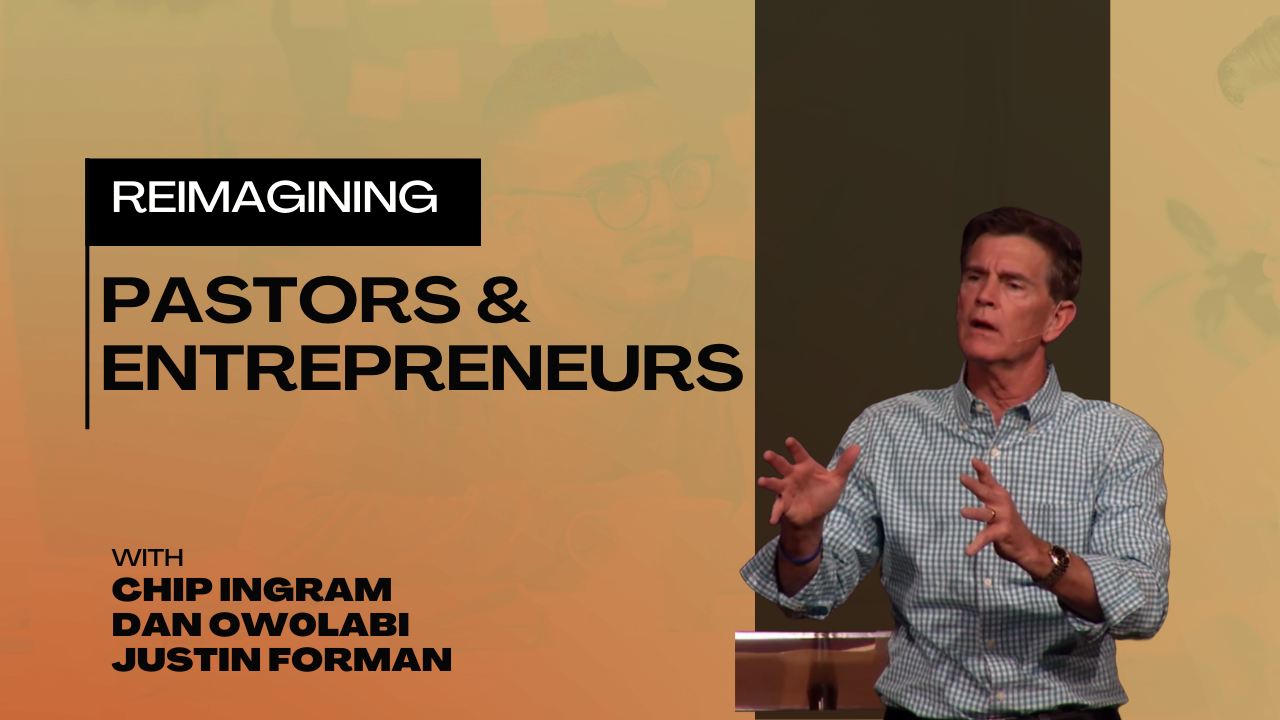
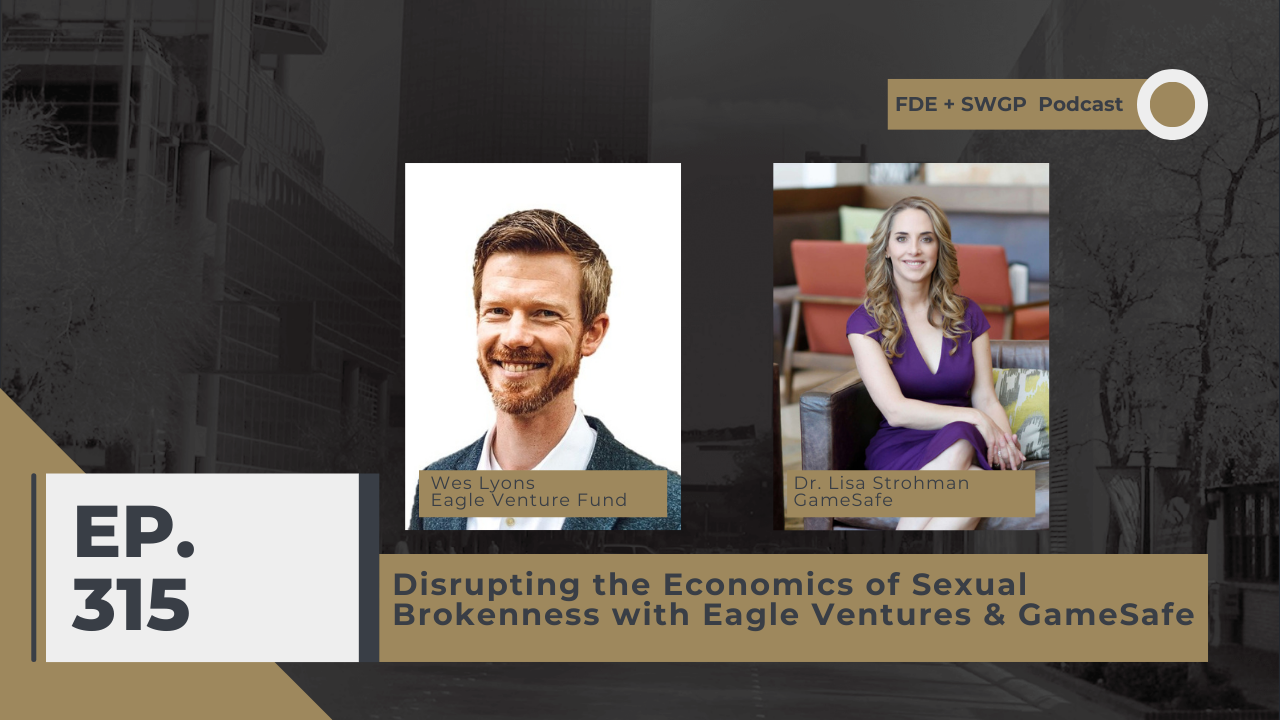
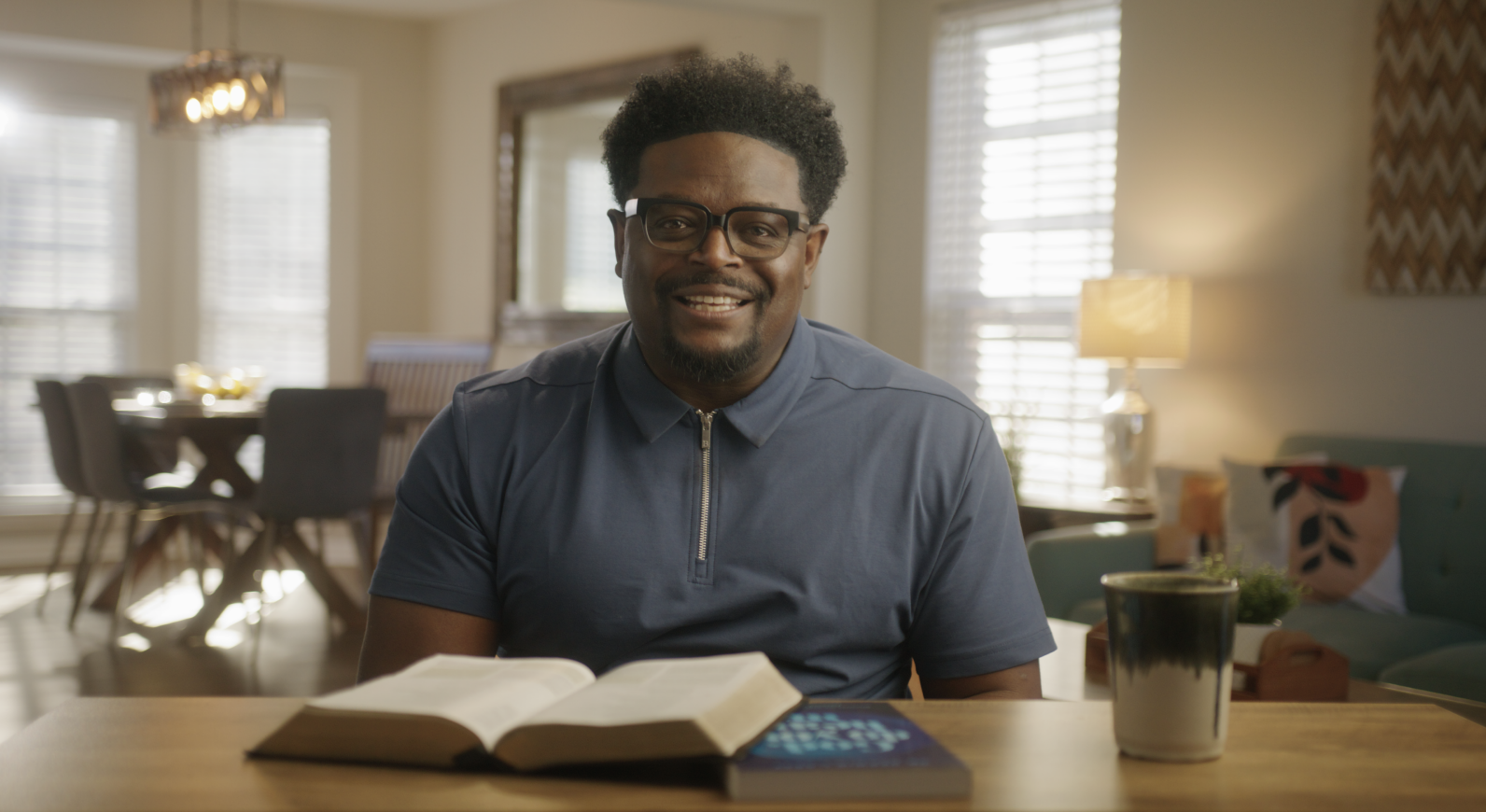

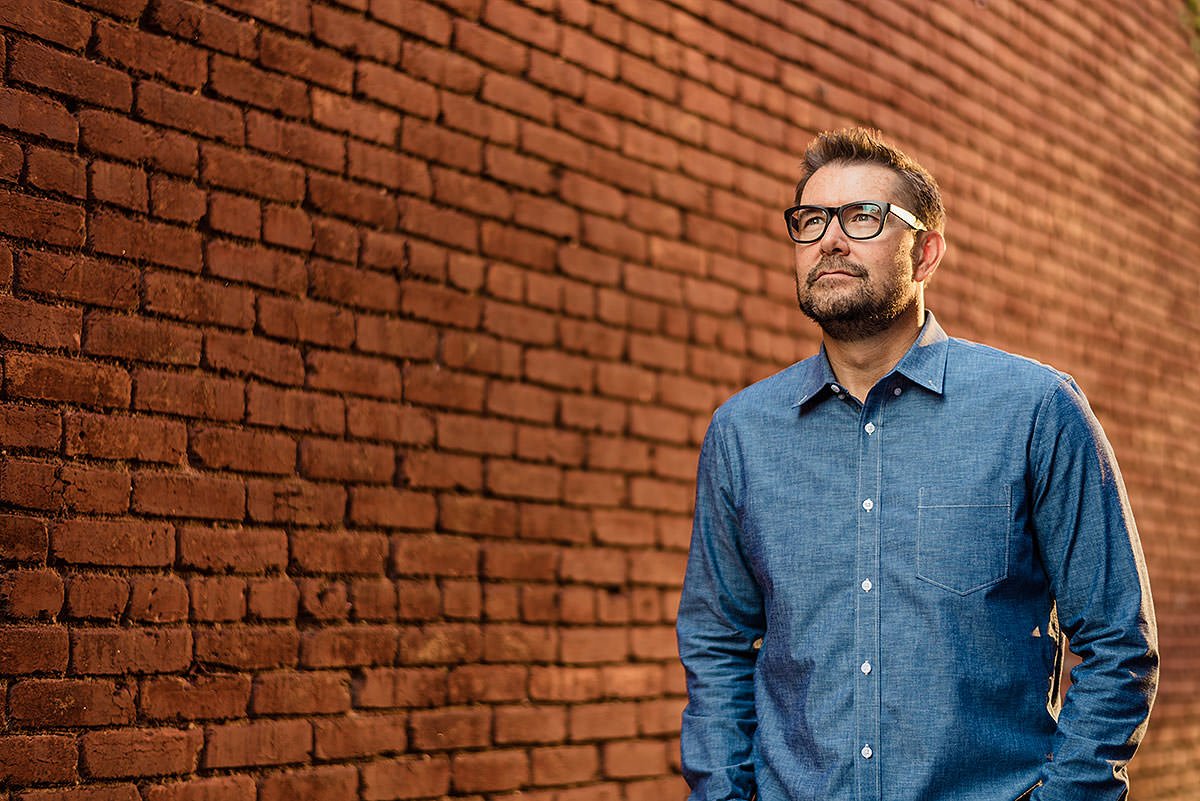
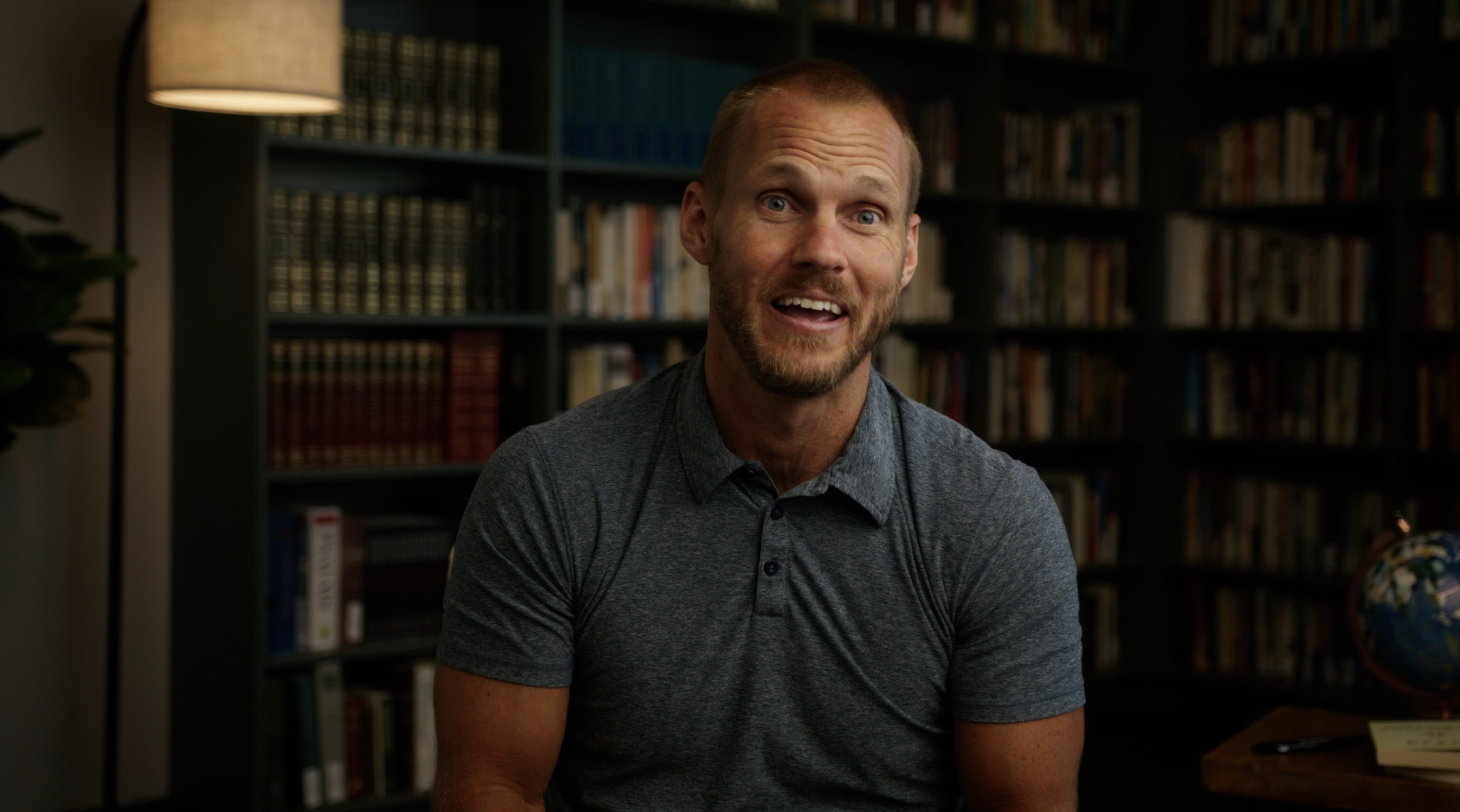
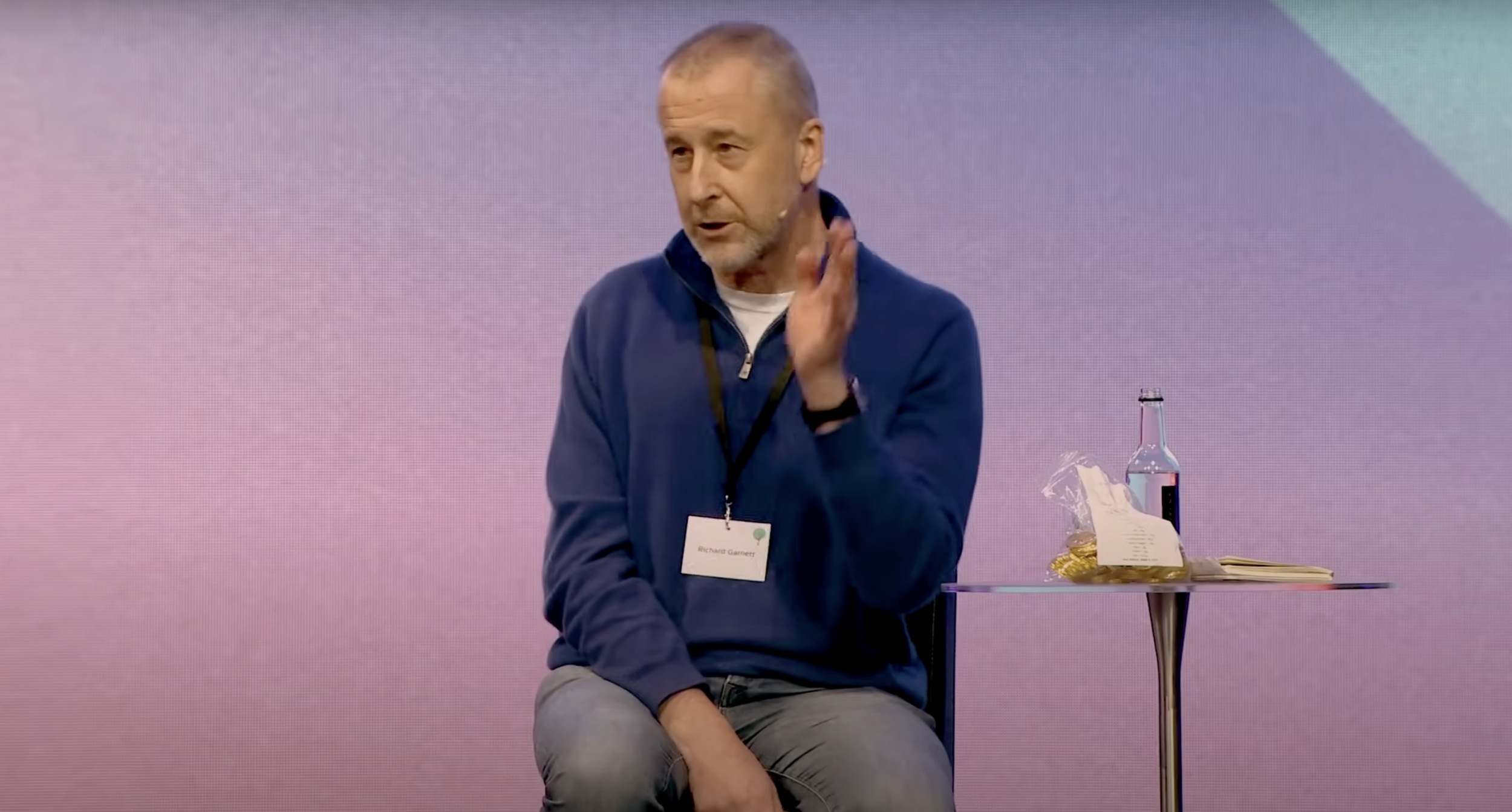
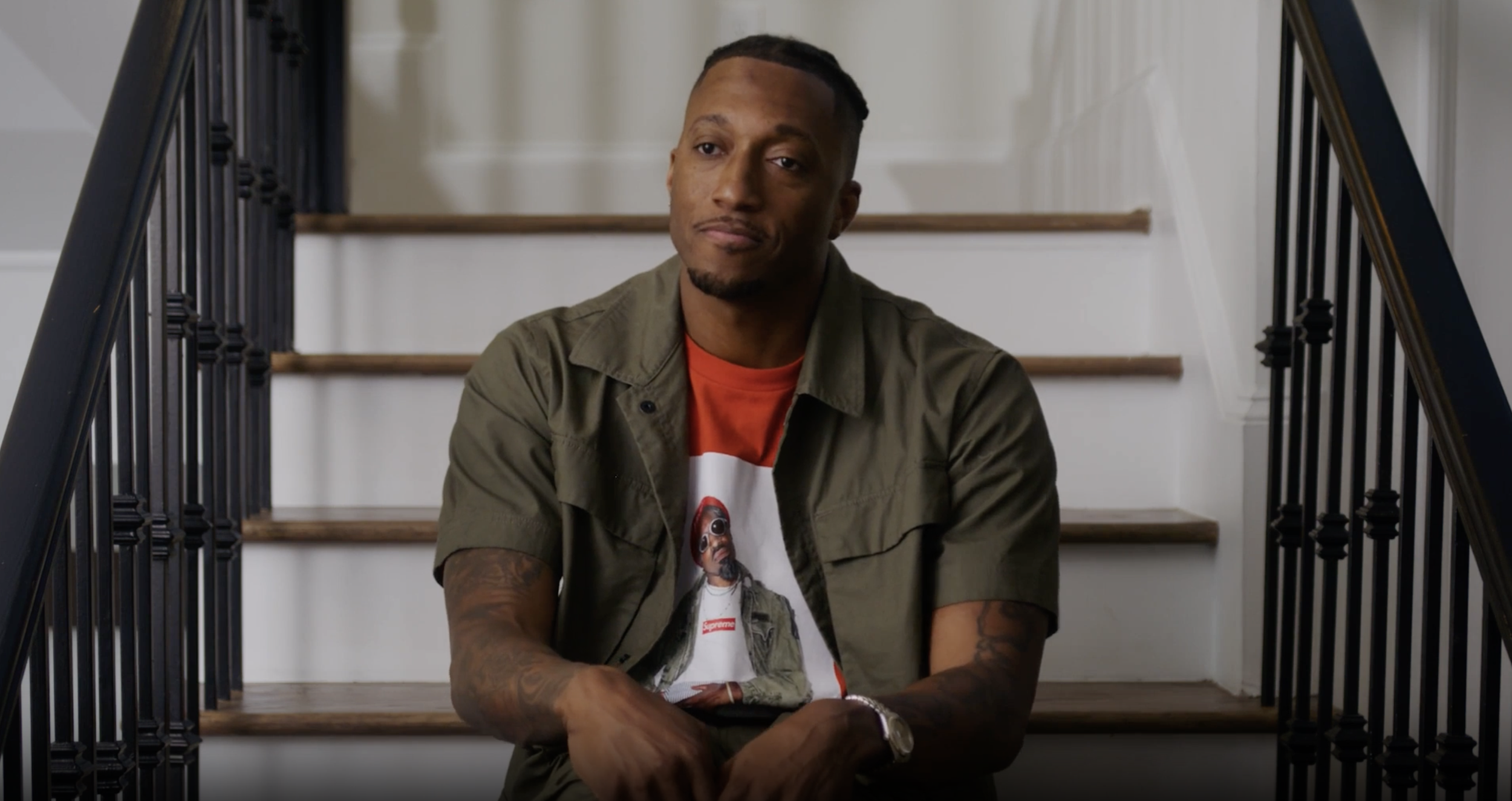
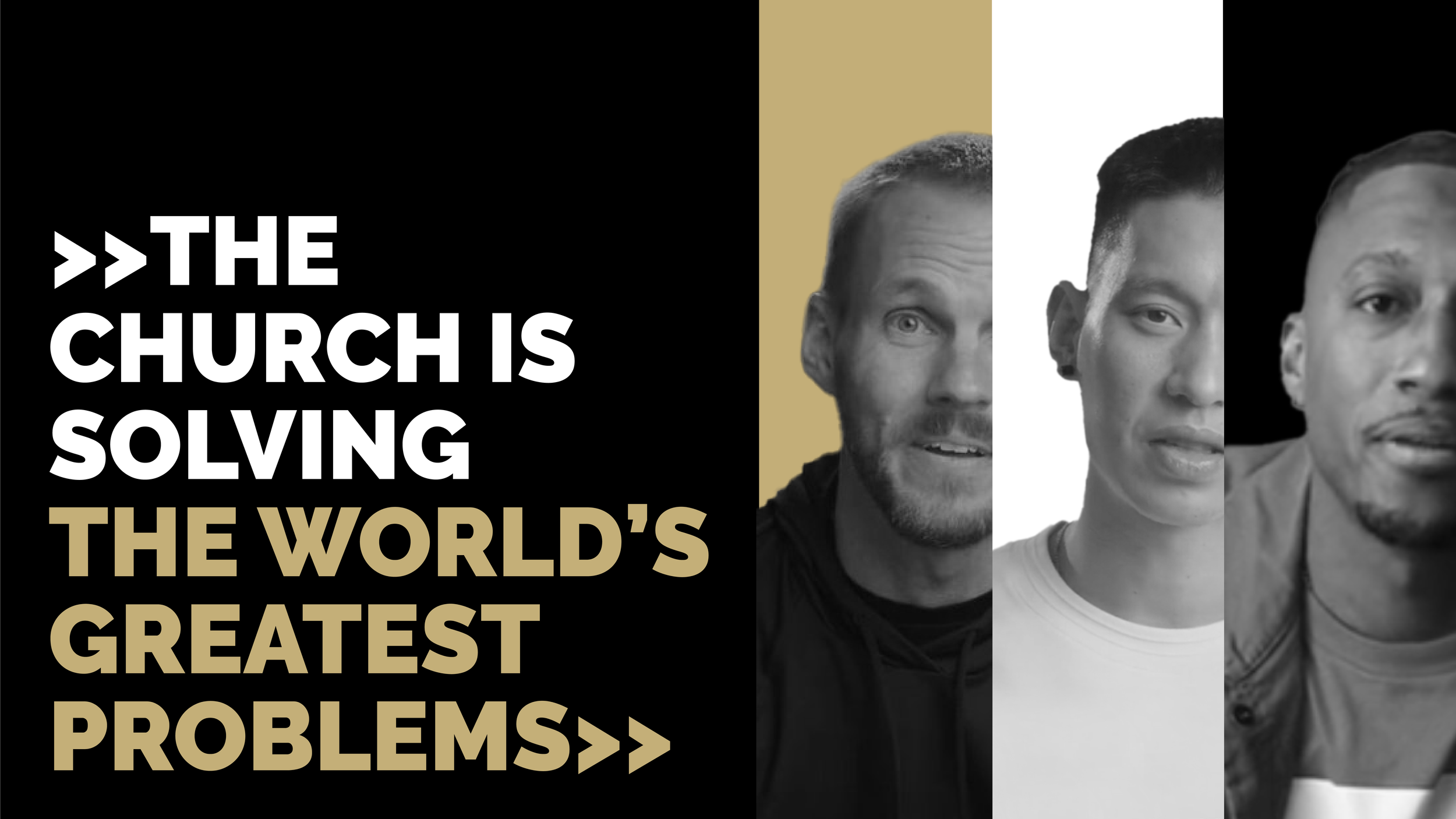

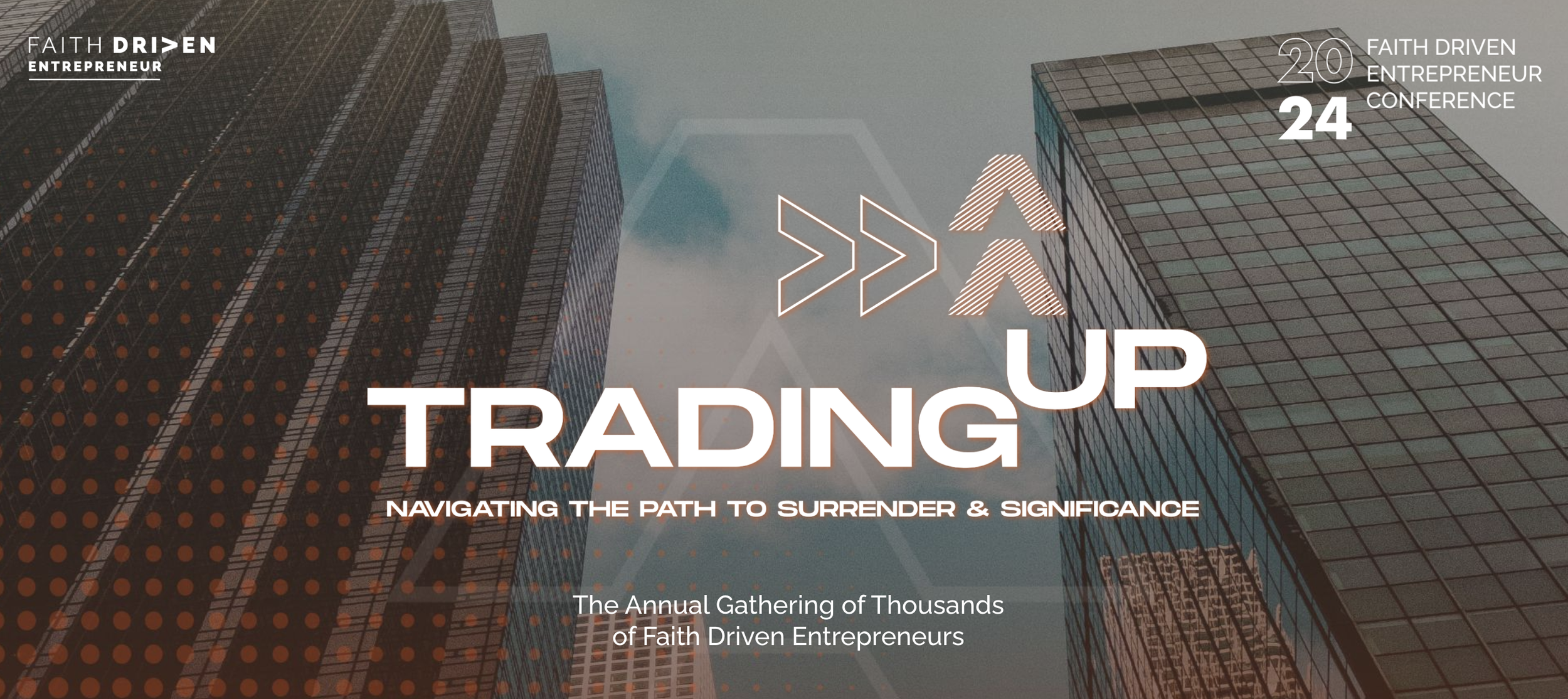
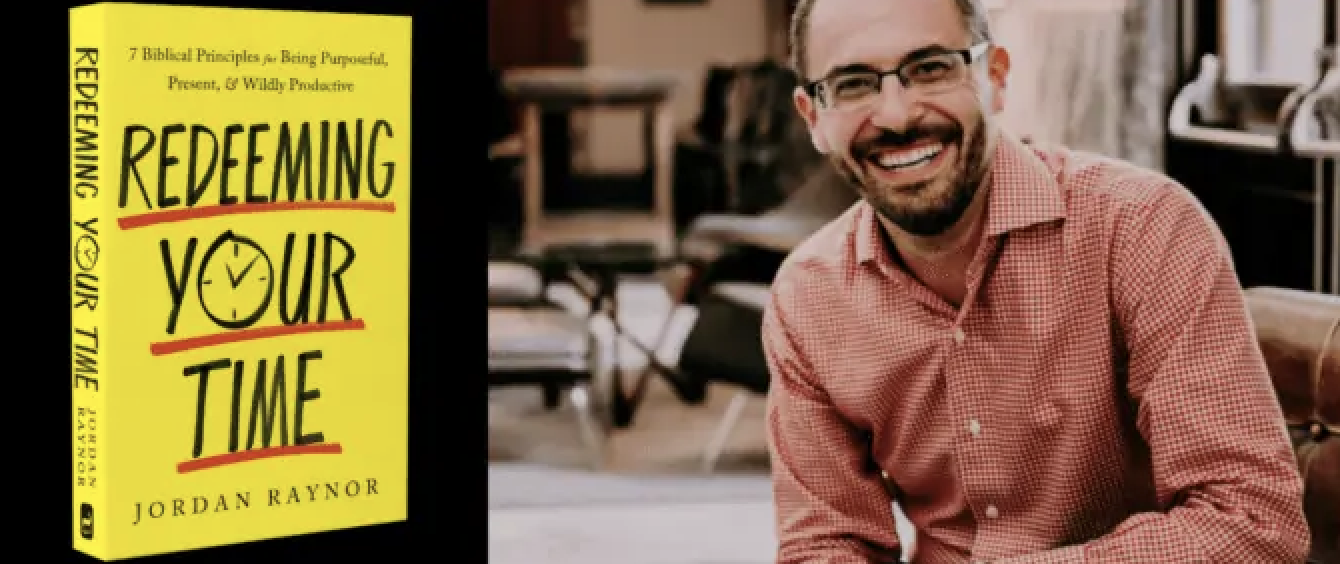
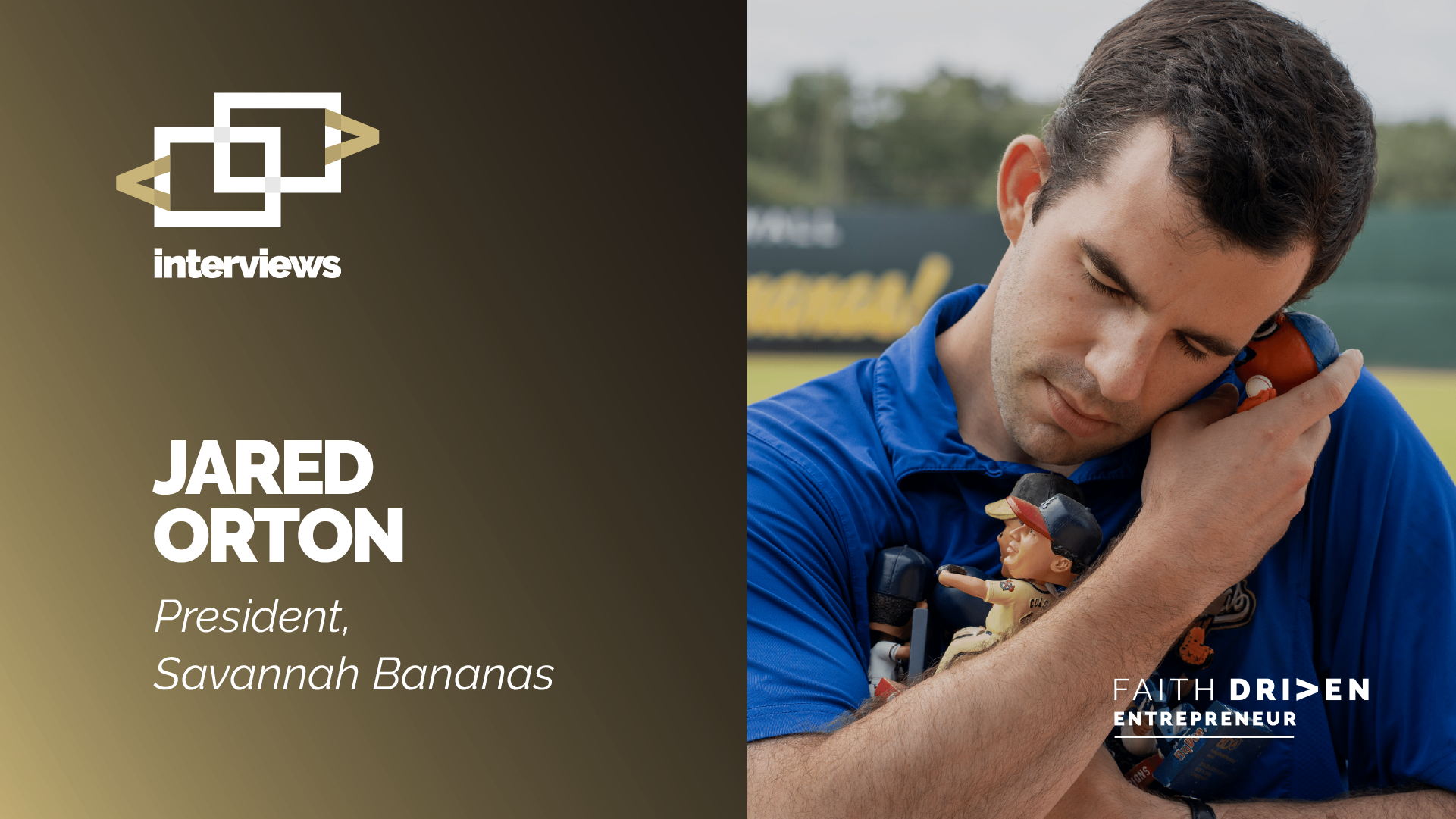
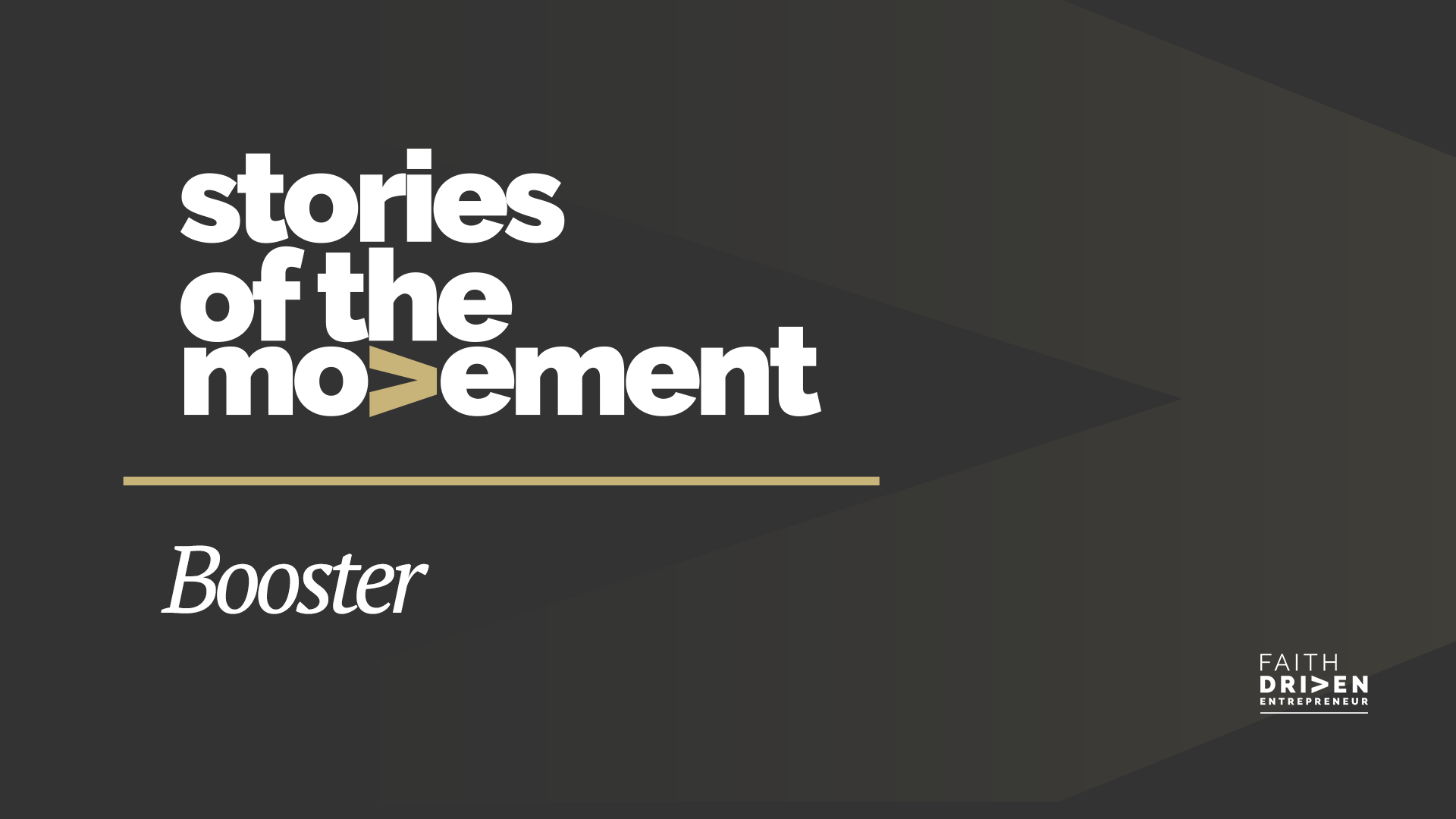

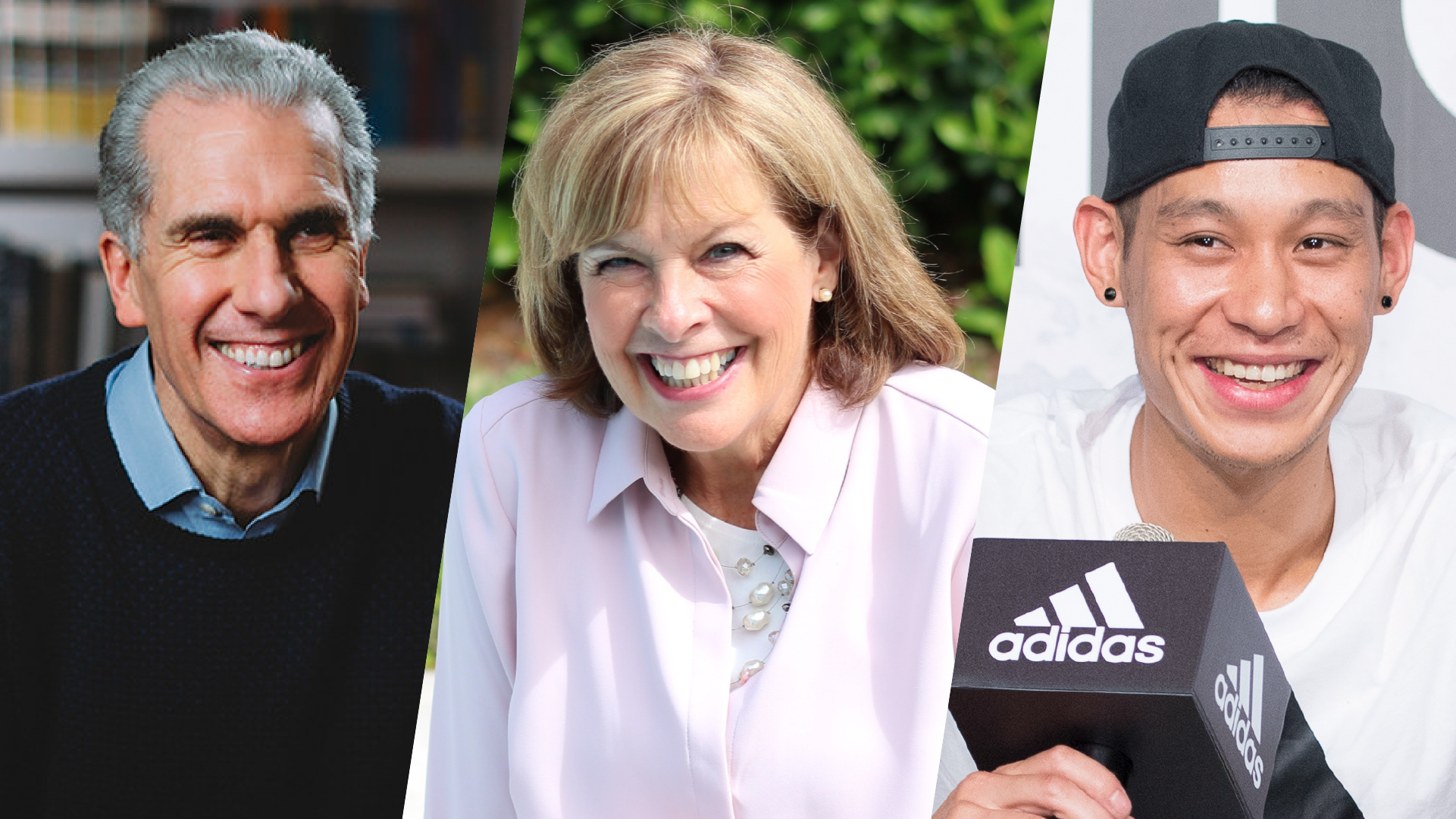
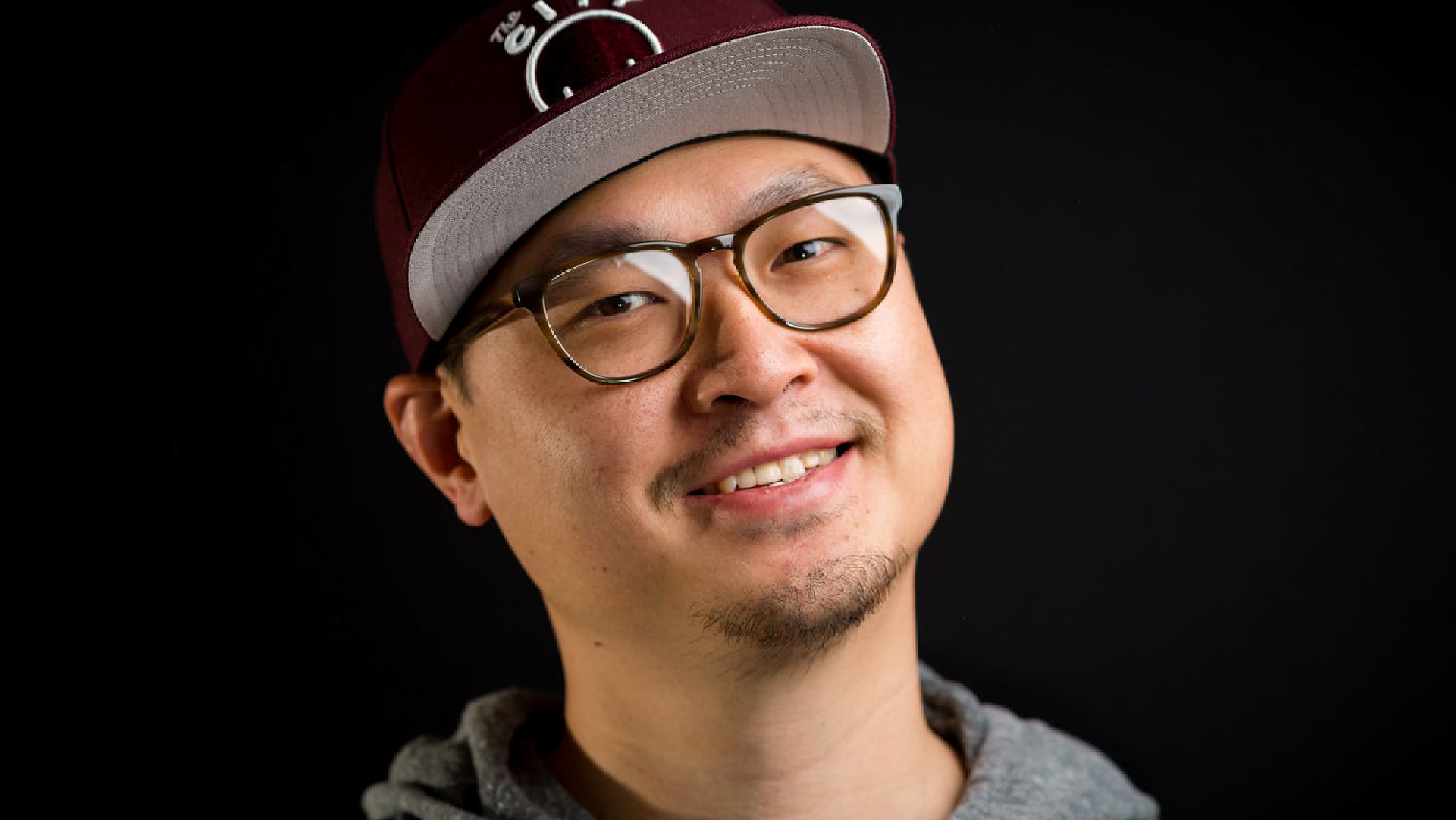
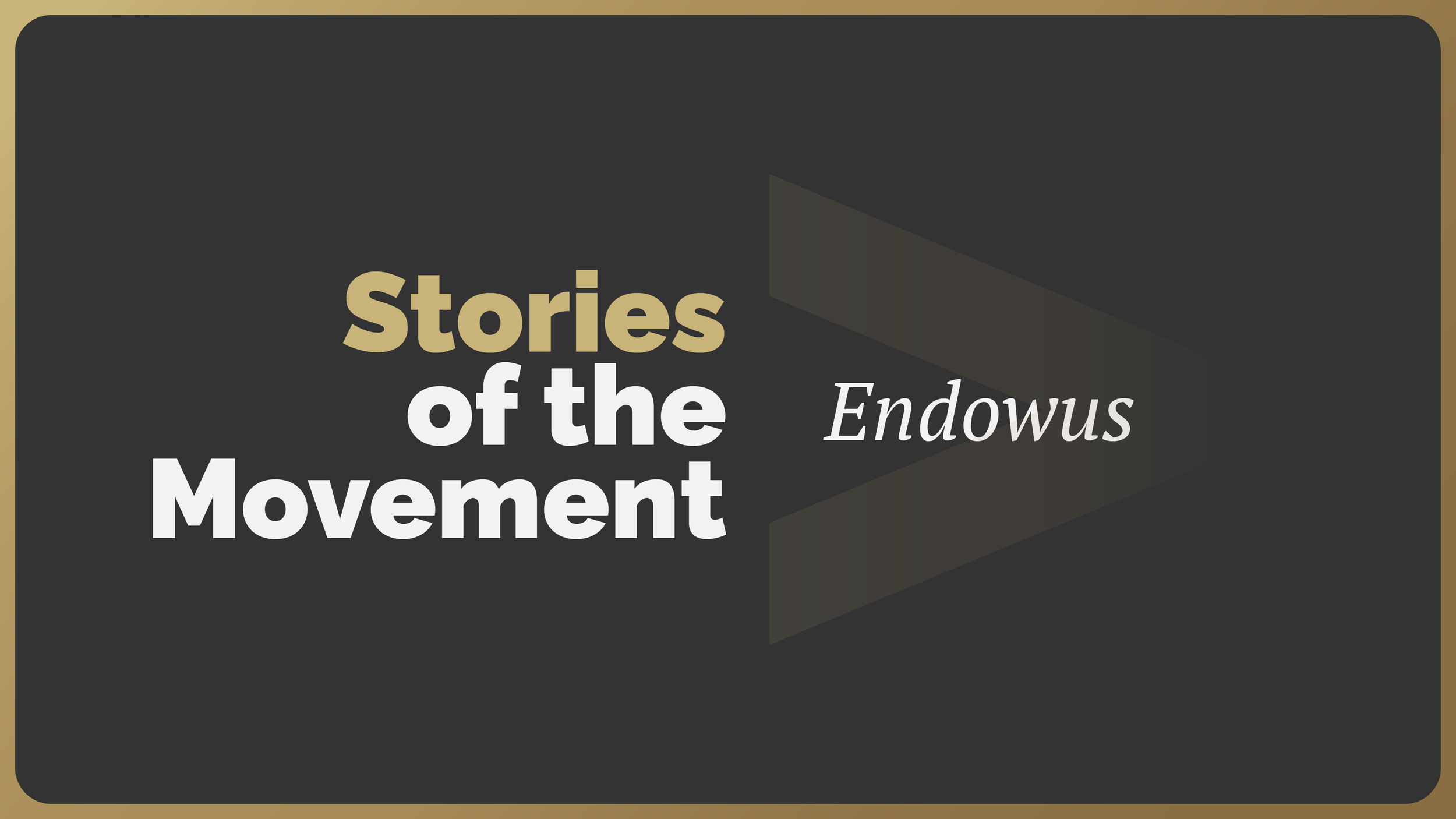

Follow the podcast